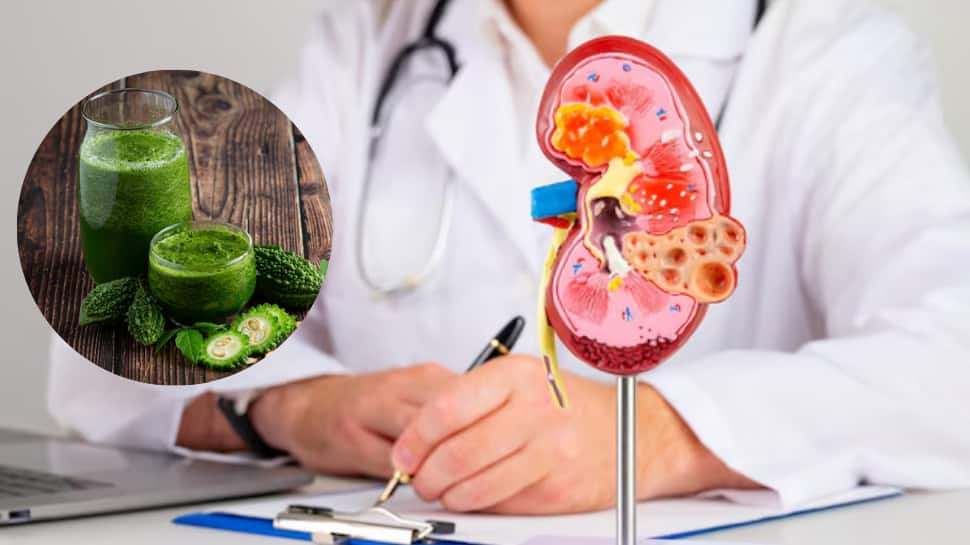Karela, also known as bitter gourd, has been used in traditional medicine for centuries. Its juice is widely consumed for its potential health benefits, especially in managing blood sugar levels and detoxifying the body. But when it comes to kidney health, people often wonder—is drinking karela juice daily safe, or does it pose risks?
Let’s explore the benefits and possible side effects:-
Benefits of Karela Juice for Kidney Health
1. Natural Detoxification
Karela juice is rich in antioxidants and helps flush out toxins from the body. This detoxifying effect can support kidney function by reducing the overall toxin load.
2. Helps Manage Blood Sugar
High blood sugar can damage the kidneys over time. Karela juice contains compounds like charantin and polypeptide-p, which help regulate blood sugar levels naturally, indirectly protecting kidney health.
3. Rich in Nutrients
Packed with vitamin C, vitamin A, magnesium, potassium, and fiber, karela juice provides nutrients that support overall organ health, including the kidneys.
4. Anti-inflammatory Properties
The anti-inflammatory nature of karela juice may help reduce inflammation in the body, which is beneficial for kidney tissues and urinary tract health.
5. Supports Healthy Digestion
Since poor digestion can contribute to toxin buildup, karela juice helps improve metabolism and gut health, indirectly reducing the burden on the kidneys.
Risks and Side Effects of Daily Karela Juice
1. Risk of Kidney Stones
Karela contains oxalates, which in excess may contribute to kidney stone formation in susceptible individuals. Daily high intake may increase this risk.
2. Blood Sugar Drops Too Low
For people already taking diabetes medication, karela juice may cause blood sugar to drop dangerously low, which can affect kidney function.
3. Risk of Liver and Kidney Stress
Overconsumption of karela juice has been linked to increased stress on the liver and kidneys. Moderation is key.
4. Digestive Discomfort
Drinking too much karela juice can lead to stomach cramps, diarrhea, or nausea, which may indirectly impact hydration and kidney balance.
5. Pregnancy and Children Concerns
Karela juice is not recommended for pregnant women as it may trigger uterine contractions. In children, its bitterness and potency may cause stomach upset.
How Much Karela Juice is Safe?
Consuming half a cup (around 50–100 ml) of diluted karela juice a few times per week, rather than drinking it daily. Always consult a healthcare professional if you have kidney-related conditions, diabetes, or are on medications.
Karela juice does have health benefits, including some that may support kidney function by detoxifying the body and managing blood sugar. However, daily consumption is not advisable, as it can pose risks like kidney stones, low blood sugar, and organ stress. The key is moderation—enjoy karela juice occasionally and always combine it with a balanced diet for long-term kidney health.
(This article is meant for informational purposes only and must not be considered a substitute for advice provided by qualified medical professionals.)

